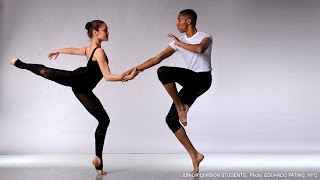The ExxonMobil Bernard Harris Summer Science Camp
Here is some excerpts from the weeks of August 4, 2011 of
The Journal of Blacks in Higher Education. Sign up for their bulletin, they have lots more information at
http://www.jbhe.com.
Building our children's math and science skills is very important. This info came a little late for this summer but for anyone interested I would still check if there are any openings and, definitely, bookmark it for next year.
The Journal of Blacks in Higher Education -
The Granddaddy of Summer Science Camps
This summer more than 1,500 middle school students will attend one of 25 sections of the
ExxonMobil Bernard Harris Summer Science Camp. The camps are open to students from underrepresented minority groups and preference is given to students from low-income families. Students must have a B average in school, score high on standardized tests, and write a 250-word essay on why they want to attend the camp.
About 50 students attend each two-week camp. The camps are free for students. Students study science, mathematics, and other disciplines and participate in a wide range of social activities, field trips, and counseling sessions.
Bernard Harris Jr. is a former astronaut who is now president of the Bernard Harris Foundation. Harris was the first African-American to walk in space.
After growing up in San Antonio, Harris earned a bachelor’s degree at Baylor University. He earned a master’s degree at the University of Texas at Galveston, an MBA from the University of Houston, and a medical doctorate from Texas Tech University. He is currently an associate professor of internal medicine at the University of Texas and an assistant professor at the Baylor College of Medicine. Visit their site
http://www.theharrisfoundation.org
The dynamics of learning under the pressure of racism undermines young people's ability to succeed in their studies. I think more research needs to be done on how racism and stress effects young children's ability to study and learn. We know there is a problem but what can be done?
The Journal of Blacks in Higher Education -
Expanding the Research on Stereotype Threat
Research conducted many years ago by Claude Steele at Stanford University, and later confirmed by Professor Steele and other researchers, has shown that black students perform poorly on standardized tests because they fear mistakes will confirm negative stereotypes about their group. When efforts to alleviate these concerns are made, black students’ scores improve.
A new study at Stanford has shown that this “stereotype threat” can also hinder black students in learning new material. In an experiment, groups of black and white students were asked to study the meanings of 24 obscure words. One group was placed in a threatening environment by being told that they were participating in an experiment to see “how well people from different backgrounds learn.” Another group was simply told the researchers were examining different learning styles and there was no hint of any racial undertones.
One to two weeks later, the students were quizzed informally about the words they had studied. The results showed that black students who were initially in the group that was told racial differences were being examined, scored 50 percent lower than black students who had studied in the nonthreatening environment. But when an actual test was administered, the stereotype threat kicked in and both groups of black students performed poorly.
The lead author of the study is Valerie Jones Taylor who was a graduate student at Stanford and now is conducting postdoctoral research at Princeton. The paper was published in the Personality and Social Psychology Bulletin.
I think the problem here is not only quantity but quality. Passive consumption of media material can be unhealthy. What are minority children learning or not learning from their experience? How is it effecting their character, values and self esteem? Electronic gadgets can not provide for the social interaction and physical needs of young people.
The Journal of Blacks in Higher Education -
Black Youth’s Large Media Appetite
A recent study by researchers at Northwestern University found that blacks and other minority students ages 8 to 18 spend 13 hours a day consuming media content through electronic devices including television, computers, cellphones, and other electronic gadgets. This is 4.5 hours more than young whites.
The study found that black and Latino youths spend one to two hours more watching television than whites and up to 90 minutes more on computers and cellphones. Some 84 percent of black youths reported that they had a television in their bedroom compared to 64 percent of white youths.
While television and online media can be used for education and learning, some educators believe that the heavy media consumption of black youth hinders their academic achievement. Also, there are concerns that spending so much time with television, computers, and cellphones contributes to higher rates of obesity.


